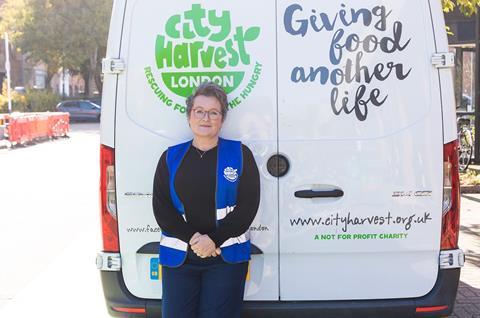Report lays bare how increased costs linked Brexit, climate change and other factors threaten UK food security and hit the poor hardest

City Harvest has published the second edition of its Food Value Report, which emphasises that the UK’s food self-sufficiency is at a critical low.
The charity points out that the UK imports nearly half of its vegetables (48 per cent) and over 80 per cent of fruit. This puts the availability and affordability of fresh produce – which plays an important part in people’s health – at risk.
At the same time, people have already been affected by food inflation in recent years, and the poorest have been hit the hardest. Between 2021 and 2023, the least well-off paid 29.1 per cent more for their food, compared with 23.5 per cent for the better-off.
The City Harvest report explores the most pressing challenges facing the food industry. Unfavourable trade and climate conditions, both of which contribute to the unprofitability of domestic food production, pose a significant barrier to the industry’s ability to secure our food self-sufficiency.
The report underscores the need for action to overcome the lack of confidence in better prospects, particularly cross-sectoral and cross-governmental cooperation, better conditions for British farmers, research and development, and the promotion of local food to consumers.
Through a survey of food industry representatives – ranging from producers to manufacturers, sellers, and foodservice – the report investigates the ways in which Brexit and exceptionally wet weather affected food businesses and what is needed to remedy those effects.
In addition, it presents the industry’s predictions for the upcoming winter, particularly regarding food prices and overall self-sufficiency.
Reflecting on the findings, City Harvest CEO Sarah Calcutt, said: “Our biggest priority is the delivery of a sustainable, healthy diet to those facing hunger. What this report clearly demonstrates is that we are all facing elements of food insecurity this winter, and the poorest will be the worst affected.
“Climate change, war, unstable geopolitics – it all has an effect on food supply systems. And the rise in the cost-of-living is going to impact to an even greater degree on the 20 per cent of our population already facing malnutrition and hunger.”
The research highlights that there is room for optimism within the food industry as long as there is investment into long-term solutions that ultimately strengthen the UK’s food self-sufficiency.
City Harvest is calling for a cross-sectoral and cross-governmental response, and policy and investment supportive of British farming, as well as education and assistance for consumers.
It says key areas of action include:
- Effective and clear policy objectives that support domestic food production and minimise supply chain disruptions
- Support for farming through financial mechanisms, partnerships and technology investment
- Improving the food redistribution process and coordination mechanism between the government, third sector, and businesses
- Increasing the awareness of the value and consumption of local food
The report and its findings can be read in full here.



